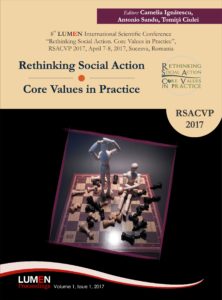Assessment of Marine Professionals’ Needs
Assessment of Marine Professionals’ Needs
Author(s): Nicoleta Acomi, Ovidiu Acomi
Subject(s): Essay|Book Review |Scientific Life
Published by: Editura Lumen, Asociatia Lumen
Keywords: Marine professionals; maritime training; labour market; market survey; marine careers
Summary/Abstract: Marine professionals represent a category of people with a wide area of competences. Their line of work often requires a wide range of technical knowledge and skills, along with transversal and soft skills acquired across multidisciplinary subjects. In addition to technical competencies provided through formal training, the predominantly temporary-based marine work assignments require skillsets that enable them to carry out specialised jobs. The challenge for this category of personnel is to maintain themselves up to date through continuous professional development. From a different perspective, training centres face similar challenges related to improving the existent curricula or proposing new training programmes to respond to the labour market needs. The present paper aims at exemplifying the utility of conducting survey-based primary market research for identifying the marine sector needs. The research method consists of establishing questionnaires targeting various categories of marine personnel and specific needs. Feedback was collected through an online survey during 2017. The questionnaires developed with filtering questions aim at involving trainees, lecturers, marine professionals, recruiters, career advisors and employers. This approach is thought to provide data of sufficient quality and quantity to meet the objective of reducing the gaps between the education sector and business expectations. The results of this study emphasise the views of the respondents with regards to the marine labour market. Based on the analysis of results, the authors proposed a set of solutions for developing the skills of marine professionals. The authors draw on the above and assert that continued data collection through online survey may result in closing the existing and emerging gaps.
Book: Rethinking Social Action. Core Values in Practice
- Page Range: 9-17
- Page Count: 9
- Publication Year: 2017
- Language: English
- Content File-PDF

